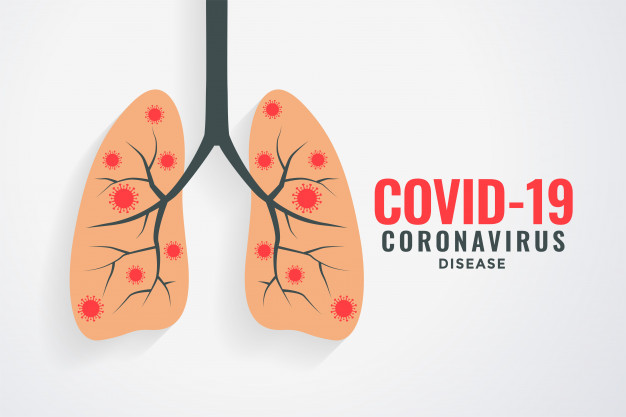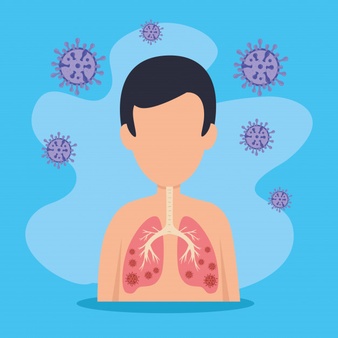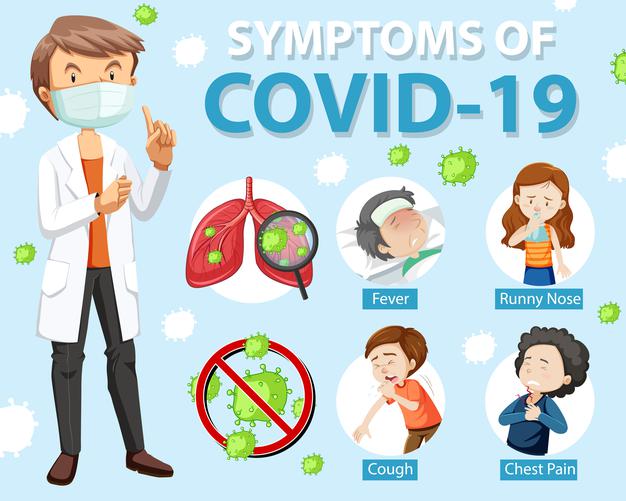All around the world, there have been a lot of efforts made to stand up against the novel Coronavirus. The pandemic, which took the world by the storm had put all from patients to healthcare workers in a fix. Yet, gradually, we learned a lot about the coronavirus and how it affects our bodies.

During this hard time, one of the first things we all learned was how Covid-19 can affect our Respiratory system. The effect which the virus has on our lungs can be fateful, especially to the people previously experiencing co-morbidities.
How does Covid-19 reach the lungs?
Covid-19 is a lethal disease that is majorly affecting the respiratory system and lungs are a major part of it. Numerous people believed that the novel coronavirus entered the circulatory system and hence affected the lungs. But over time, the real way to the lungs was found. When a person comes in contact with a Covid-19 patient. And afterward touches their face, the virus can enter the body through the nose, mouth, or eyes. It does as such by sticking to the mucous membranes. On entering the body, they increase on a large scale and take over healthy cells.
These recently formed cells then enter the trachea, which is also called the windpipe of the body. As an organ, the trachea is like a hollow tube with a branch-like junction at its end. These junctions are connected to the lungs. The virus cells go down the windpipe and arrive at the junction, and then, the lungs. The junctions towards the end of the trachea have small air sacs. These sacs, known as alveoli are liable for sending oxygen to the rest of the body. The covid cells contaminate the upper and lower part of the trachea and thus, cause problems in sending oxygen to crucial organs, which is what makes it such a deadly affliction.
What to Do When COVID-19 Spreads To The Lungs? 
It’s in the second week of being infected with coronavirus, that the infection might spread to your lungs. The extreme complications of the virus seem to appear when the infection spreads to your lungs. It is at this time when the patient’s condition may start deteriorating and may begin to experience symptoms like severe cough and other symptoms like pneumonia.
-
Signs that show coronavirus may have spread to the lungs
Coronavirus is basically a respiratory disease that causes symptoms like breathing trouble, cough, and fever. As referenced above, It’s somewhere around the second week of being infected with COVID-19, that the infection may spread to the patient’s lungs.
If someone has a consistent fever, above 100 for 2-4 days, and if they have inflammatory markers in their blood, most importantly high C-reactive protein (CRP) levels (above 10), and dipping oxygen saturation (less than 94), these are signs that may flag that virus has spread to the lungs,”
-
Symptoms to watch out for

Patients that have tested positive for the virus will have mild to strong symptoms like dry cough, loss of sense of taste breathlessness, fever, and smell, tiredness, and chest pain.
If the infection has spread to the lungs, the symptoms may be persistent cough and fever, chest discomfort, low oxygen saturation breathlessness on exertion, and blood inflammatory markers. It usually happens after five-six days of the virus.
-
Important to be in touch with the doctor
A person who has already tested positive for COVID-19 is most likely to already be in constant touch with the doctor. But Once you have an infection in the lungs, the doctor will prescribe if you need a CT scan, or if need to be prescribed some steroids, or if you need to get admitted to the hospital for appropriate treatment. So it’s highly required to be in constant touch with your doctor.
Taking care over time
For patients who have been affected by a coronavirus, there needs to be a good amount of care taken. Currently, many medical studies point to the fact that the lungs are mostly affected due to the novel coronavirus. As such may cause fatigue and a lack of immunity even after the virus has gone. In such cases, a recovery regimen set by your doctor needs to be followed thoroughly. And along with that, precautionary measures should also be followed so as to not be re-infected by the disease.
If you have experienced symptoms of Coronavirus, reach out to your doctor immediately or get an RT-PCR test done from Pathkind labs. Given the case that you have already been a coronavirus survivor, it is essential that you get an Antigen test done to see how strong your antibodies are to fight the occurrence of other diseases in the coming future.
